Maintaining industrial equipment is crucial for ensuring the efficiency and reliability of an industrial plant. However, achieving this reliability isn’t just about reacting to breakdowns but also proactive care through routine industrial maintenance. This process involves scheduled inspections, preventive measures, and predictive techniques designed to keep the machinery running smoothly and minimize disruptions.
In this article, we’ll dive into the numerous benefits of regular industrial maintenance, from enhancing equipment lifespan and minimizing downtime to optimizing productivity and ensuring compliance with industry standards.
Understanding Routine Industrial Maintenance
Routine industrial maintenance involves scheduled inspections, preventive tasks, and predictive techniques to ensure the optimal performance and longevity of equipment and systems within industrial facilities. It is crucial because regular maintenance helps prevent equipment breakdowns, reduces downtime, and extends the lifespan of machinery.
Routine maintenance enhances safety, improves efficiency, and lowers operational costs by identifying and addressing potential issues early. It also ensures compliance with industry standards and regulations, improves productivity by maintaining consistent equipment performance, and contributes to a safer and more reliable working environment for employees.
Key Components of Routine Industrial Maintenance
There are many elements that go into regular industrial maintenance, including the following:
- Scheduled Inspections
- Preventive Maintenance Tasks
- Predictive Maintenance
- Maintenance Scheduling
- Documentation and Record Keeping
- Training and Development
- Spare Parts Management
- Safety Protocols
- Continuous Improvement
- Communication and Coordination
The Cost of Neglecting Industrial Maintenance
Neglecting industrial maintenance can lead to severe consequences, including frequent equipment breakdowns, costly emergency repairs, and unplanned downtime that disrupts operations and reduces productivity. Over time, poorly maintained machinery becomes less efficient, consuming more energy and increasing operational costs. This neglect can also compromise safety, posing significant risks to employees and potentially leading to workplace accidents and injuries.
Failing to maintain equipment can result in non-compliance with industry regulations and standards, exposing the business to legal penalties and damaging its reputation. Ultimately, the long-term financial and operational impacts of neglecting industrial maintenance far outweigh the costs of implementing a routine maintenance program.
Ensure your industrial plant remains efficient and operational with Smith-Boughan’s routine industrial maintenance services.
8 Benefits of Routine Regular Industrial Maintenance
There are many advantages to implementing a routine industrial maintenance schedule. From improving the efficiency of your systems to minimizing breakdowns, let’s explore eight benefits of regularly scheduled industrial maintenance.
1. Increased Equipment Lifespan
Routine industrial maintenance significantly extends the lifespan of your machinery and equipment by preventing premature wear and tear. Regular servicing ensures that all components function optimally, reducing the likelihood of breakdowns and failures. This proactive approach means that minor issues are addressed before they escalate into major problems, preserving the integrity and longevity of your equipment.
This leads to lower capital expenditures, as the need for frequent replacements is minimized, maximizing your investment.
2. Improved Safety
Routine maintenance plays a crucial role in enhancing workplace safety by ensuring that all equipment operates safely and correctly. Regular inspections and servicing identify potential hazards such as faulty components, worn-out parts, or other risks that could lead to accidents or injuries.
By addressing these issues promptly, maintenance helps to create a safer working environment, reducing the likelihood of workplace incidents. This proactive approach protects employees and mitigates liability risks for the business.
3. Enhanced Efficiency
Well-maintained equipment operates more efficiently, reducing energy consumption and operational costs. Routine maintenance ensures that machinery is always in top working condition, which helps to optimize performance and productivity. Efficient equipment runs smoother, experiences fewer slowdowns, and requires less energy to operate.
This significantly reduces utility bills and operational expenses, allowing businesses to allocate resources more effectively and improve their overall bottom line.
4. Reduced Downtime
Preventative maintenance helps to identify and address issues before they lead to equipment failure, minimizing unexpected downtime. Regular checks and servicing keep machinery in optimal condition, reducing the likelihood of sudden breakdowns that can halt production. This ensures that operations run smoothly and continuously, preventing costly disruptions.
By maintaining a consistent workflow, businesses can meet production deadlines, satisfy customer demands, and avoid the financial losses associated with unplanned downtime.
5. Cost Savings
Routine maintenance prevents major breakdowns and prolongs equipment life, reducing the need for expensive emergency repairs and replacements. By addressing minor issues early, businesses can avoid the high costs associated with major equipment failures. Additionally, well-maintained machinery is more energy-efficient, leading to lower utility bills.
Over time, the cumulative savings from reduced repair costs, extended equipment lifespan, and improved energy efficiency can substantially impact the company’s financial health.
6. Consistent Product Quality
Properly maintained machinery produces more consistent and higher-quality output, enhancing the reliability and reputation of your products. Regular industrial maintenance ensures that equipment operates within optimal parameters, reducing the likelihood of defects and variations in the final product.
This consistency is crucial for maintaining customer satisfaction and loyalty. High-quality output also reduces waste and rework, leading to more efficient use of materials and resources, further enhancing overall production efficiency and profitability.
7. Compliance with Regulations
Regular industrial maintenance ensures that your equipment meets industry standards and regulatory requirements, helping you avoid fines and legal issues. Compliance with regulations is critical for maintaining operational licenses and certifications. Routine maintenance helps to identify and rectify any issues that could result in non-compliance, ensuring that all machinery and processes adhere to the latest safety and environmental standards.
This proactive approach protects the business from legal penalties and enhances its reputation as a responsible and compliant operator.
8. Data and Insight
Regular maintenance provides valuable data on equipment condition and performance, helping you make informed decisions about upgrades and replacements. Maintenance records and inspections generate insights into wear patterns, failure rates, and operational efficiency. This information can be analyzed to predict future maintenance needs, plan capital expenditures, and optimize maintenance schedules.
By leveraging data-driven insights, businesses can enhance their maintenance strategies, improve equipment reliability, and make more strategic investment decisions.
Factors to Consider When Choosing a Preventive Maintenance Provider
When selecting a routine industrial maintenance provider, be sure to consider the following factors:
- Experience and Expertise: Look for a provider with extensive experience in your industry and expertise in maintaining the specific type of equipment and systems your facility uses.
- Reputation and References: Check reviews, testimonials, and references from other clients to gauge the provider’s reliability, quality of service, and customer satisfaction.
- Capabilities and Services: Ensure the provider offers comprehensive maintenance services that align with your facility’s needs, including preventive maintenance, predictive maintenance, emergency repairs, and shutdown management.
- Compliance and Certifications: Verify that the provider complies with industry standards and holds relevant certifications, demonstrating their commitment to quality and safety.
- Response Time and Availability: Assess their responsiveness and availability for emergency repairs and maintenance scheduling to minimize downtime and disruptions to your operations.
- Customization and Flexibility: Choose a provider willing to customize maintenance plans to meet your specific operational needs and accommodate fluctuations in production schedules.
- Cost-Effectiveness: Evaluate the provider’s pricing structure, considering both the cost of services and potential savings from improved equipment reliability and reduced downtime.
- Communication and Transparency: Select a provider that communicates effectively, provides clear documentation of maintenance activities, and maintains transparency regarding costs, timelines, and service outcomes.
If you’re looking for a provider that checks all your boxes, consider turning to the expert maintenance technicians at Smith-Boughan, Inc.
Ensure Reliable Preventive Maintenance With Smith-Boughan
At Smith-Boughan, we are dedicated to enhancing the safety and efficiency of your operations through our comprehensive industrial maintenance services. Along with plumbing, sheet metal, fabrication, and energy solutions, our team of industry experts provides ongoing preventative maintenance to ensure your systems run smoothly and reliably, minimizing downtime and maximizing productivity.
With our expertise and commitment to excellence, you can trust us to support the efficient continuity of your business, allowing you to focus on achieving your operational goals with confidence. Contact our team today to begin the process.
Share This Post
More Like This
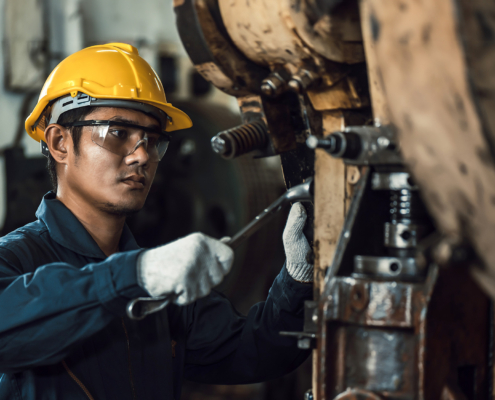
How to Develop a Quality Control Plan for Industrial Maintenance
Industrial Services (Quality Control), Maintenance
Understanding Industrial Maintenance Compliance Guidelines
Industrial Services (Maintenance), Maintenance
The Role of Technology in Industrial Maintenance Practice Innovations
Industrial Services (Maintenance), Maintenance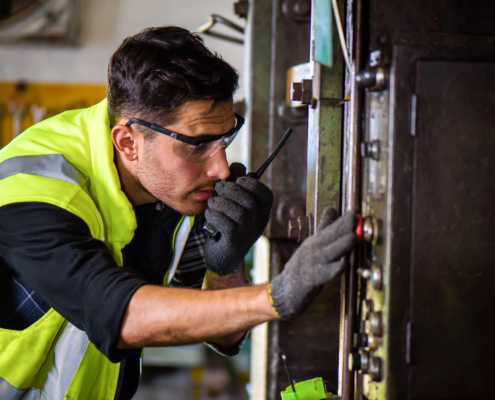
Factors to Consider When Choosing an Industrial Maintenance Provider
Industrial Services (Maintenance), Maintenance https://www.sbmech.com/wp-content/uploads/2024/07/Engineer-mechanic-man-checking-for-maintenance-pressing-metal-machine-by-laptop-at-factory.jpg
1250
2000
Abstrakt MKTG
/wp-content/uploads/2023/10/cropped-Smith-Boughan_Logo-Formated-Lima-13-1030x269.jpg
Abstrakt MKTG2024-07-19 14:46:252024-11-19 11:07:54Best Practices for Improving Industrial Maintenance
https://www.sbmech.com/wp-content/uploads/2024/07/Engineer-mechanic-man-checking-for-maintenance-pressing-metal-machine-by-laptop-at-factory.jpg
1250
2000
Abstrakt MKTG
/wp-content/uploads/2023/10/cropped-Smith-Boughan_Logo-Formated-Lima-13-1030x269.jpg
Abstrakt MKTG2024-07-19 14:46:252024-11-19 11:07:54Best Practices for Improving Industrial Maintenance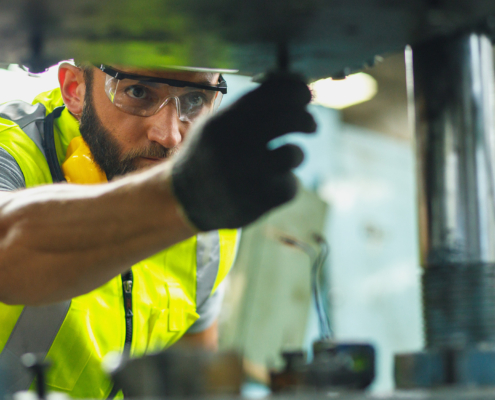 https://www.sbmech.com/wp-content/uploads/2024/07/Side-view-of-man-in-industrial-plant.jpg
1250
2000
Abstrakt MKTG
/wp-content/uploads/2023/10/cropped-Smith-Boughan_Logo-Formated-Lima-13-1030x269.jpg
Abstrakt MKTG2024-07-19 14:28:402024-11-19 11:07:55Your Guide to Industrial Maintenance
https://www.sbmech.com/wp-content/uploads/2024/07/Side-view-of-man-in-industrial-plant.jpg
1250
2000
Abstrakt MKTG
/wp-content/uploads/2023/10/cropped-Smith-Boughan_Logo-Formated-Lima-13-1030x269.jpg
Abstrakt MKTG2024-07-19 14:28:402024-11-19 11:07:55Your Guide to Industrial Maintenance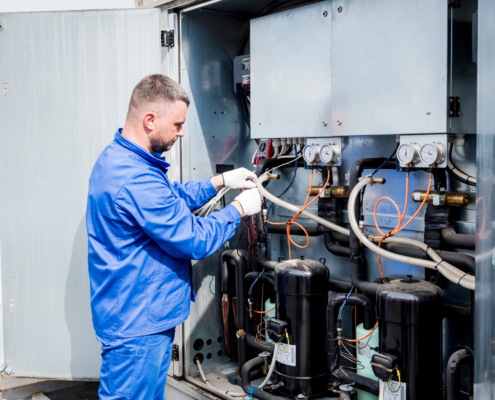 https://www.sbmech.com/wp-content/uploads/2024/06/The-Importance-of-a-Commercial-HVAC-Maintenance-Agreement.jpg
1250
2000
Brandyn Fadler
/wp-content/uploads/2023/10/cropped-Smith-Boughan_Logo-Formated-Lima-13-1030x269.jpg
Brandyn Fadler2024-06-13 15:23:402024-11-19 11:07:55The Importance of a Commercial HVAC Maintenance Agreement
https://www.sbmech.com/wp-content/uploads/2024/06/The-Importance-of-a-Commercial-HVAC-Maintenance-Agreement.jpg
1250
2000
Brandyn Fadler
/wp-content/uploads/2023/10/cropped-Smith-Boughan_Logo-Formated-Lima-13-1030x269.jpg
Brandyn Fadler2024-06-13 15:23:402024-11-19 11:07:55The Importance of a Commercial HVAC Maintenance Agreement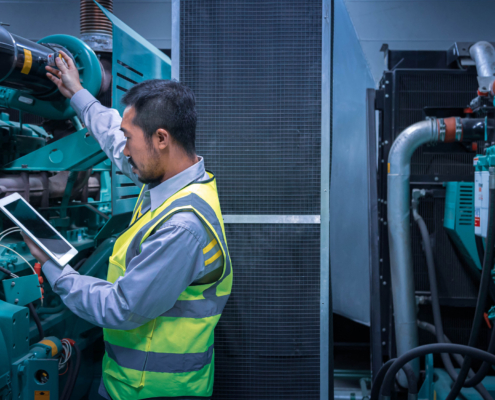 https://www.sbmech.com/wp-content/uploads/2024/06/Need-To-Know-Tips-for-Efficiently-Managing-a-Plant-Shutdown.jpg
1250
2000
Brandyn Fadler
/wp-content/uploads/2023/10/cropped-Smith-Boughan_Logo-Formated-Lima-13-1030x269.jpg
Brandyn Fadler2024-06-13 15:04:592024-11-19 11:07:56Need To Know Tips for Efficiently Managing a Plant Shutdown
https://www.sbmech.com/wp-content/uploads/2024/06/Need-To-Know-Tips-for-Efficiently-Managing-a-Plant-Shutdown.jpg
1250
2000
Brandyn Fadler
/wp-content/uploads/2023/10/cropped-Smith-Boughan_Logo-Formated-Lima-13-1030x269.jpg
Brandyn Fadler2024-06-13 15:04:592024-11-19 11:07:56Need To Know Tips for Efficiently Managing a Plant ShutdownAbout Us
Smith-Boughan Mechanical has been servicing the Lima, Ohio, region with industry-leading mechanical design, fabrication, construction, and maintenance services since 1927.




